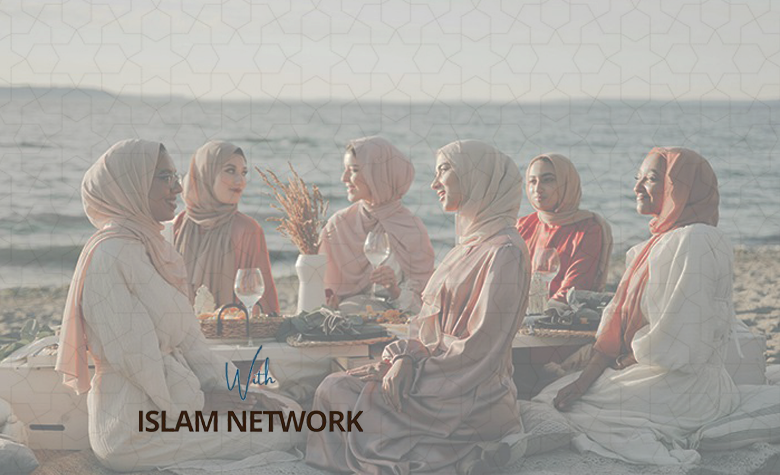- Contact Us: +971522387038
- Email:admin@islam-network.com

How Islam Honored Women
In a time when discussions around gender equality and women’s rights are increasingly prominent, it’s essential to revisit the historical and theological foundations that have shaped these conversations. Islam, a religion with deep roots and a rich history, has often been a beacon of progressive values regarding women’s rights and honor. Far from the misconceptions and stereotypes that can cloud contemporary understanding, the teachings of Islam present a nuanced and respectful view of women’s roles, rights, and dignity. Here’s a look at how Islam has honored women throughout history and continues to do so.
- Historical Context: Rights Ahead of Their Time
When the Qur’an was revealed in the 7th century, it brought with it a radical shift in the treatment of women. Before Islam, many societies practiced forms of gender discrimination and oppression. Islam introduced reforms that were revolutionary for their time, promoting the intrinsic worth and dignity of women. For instance, the Qur’an explicitly granted women the right to own property, engage in business, and inherit wealth—rights that were not universally available to women in many parts of the world at that time. - Spiritual Equality
One of the foundational principles of Islam is the spiritual equality of men and women. The Qur’an emphasizes that both men and women are equal in the eyes of God and that their worth is determined by their faith and righteous deeds rather than their gender. In Surah Al-Hujurat (49:13), Allah states: “O mankind, indeed We have created you from male and female and made you peoples and tribes that you may know one another. Indeed, the most noble of you in the sight of Allah is the most righteous of you. Indeed, Allah is Knowing and Acquainted.” This verse underscores that piety and righteousness, not gender, define one’s standing before God. - Respect and Honor in Family Life
Islam places significant emphasis on the respect and honor of women within the family structure. The Prophet Muhammad (peace be upon him) is reported to have said, “The best of you are those who are best to their women.” This reflects a broader Islamic principle of kindness, compassion, and fairness in relationships. Women are honored as mothers, daughters, and wives, with rights and respect that reinforce their central role in family life. The status of mothers is particularly highlighted, with the Prophet Muhammad emphasizing, “Paradise lies at the feet of your mother,” illustrating the immense respect and honor accorded to mothers. - Education and Empowerment
Islam encourages the pursuit of knowledge for all, regardless of gender. The Prophet Muhammad (peace be upon him) famously said, “Seeking knowledge is an obligation upon every Muslim.” This principle applies equally to men and women, fostering an environment where education and intellectual development are highly valued. Throughout Islamic history, women have made significant contributions to various fields, including science, medicine, literature, and philosophy, reflecting the empowering nature of Islamic teachings. - Rights and Responsibilities
Islamic teachings outline both the rights and responsibilities of women, ensuring a balanced approach that values their contributions while also providing protection. Women have the right to financial support, respect, and protection within marriage. They also have the autonomy to make decisions about their lives, including choices related to marriage, employment, and education. The concept of mutual rights and responsibilities fosters a partnership model rather than a hierarchical one, promoting equality and respect. - Role Models and Historical Figures
Throughout Islamic history, numerous women have emerged as role models and leaders, illustrating the honored position of women in Islam. Figures like Khadijah bint Khuwaylid, the Prophet Muhammad’s first wife, who was a successful businesswoman and a staunch supporter of her husband; Aisha bint Abu Bakr, known for her scholarship and role in early Islamic jurisprudence; and Fatimah al-Fihri, who founded the world’s oldest continuously operating university, demonstrate the active and respected roles women have played. - Modern Context and Ongoing Contributions
In contemporary times, the principles of Islam regarding women’s rights continue to resonate and inspire. Many Muslim-majority countries have seen advancements in women’s rights, including greater access to education, professional opportunities, and political participation. Islamic teachings provide a framework for addressing current issues related to gender equality, encouraging ongoing dialogue and reform to ensure that the honor and respect bestowed upon women are fully realized in today’s world.
Conclusion
Islam’s honoring of women is deeply embedded in its teachings and history, reflecting a commitment to justice, respect, and equality. From its early revelations to its impact on modern society, Islam has consistently upheld the dignity and value of women, challenging societal norms and promoting a vision of mutual respect and partnership. As we continue to explore and understand these principles, it is crucial to recognize and celebrate the profound ways in which Islam has honored and empowered women throughout history and into the present day.
Islam Network Copyright 2023 - All Rights Reserved

